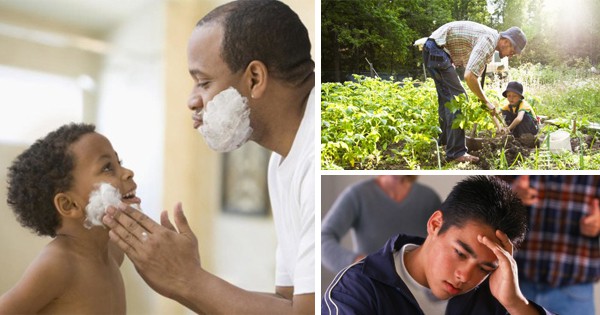Dad is role model numero uno for most boys, but with being a great role model comes great responsibility. Raising a kid takes a great deal of patience, and it takes a great deal of love – but a lot of dads aren’t sure how to handle the great deal of lessons that come with the unwritten curriculum all fathers must develop. Here are a few that should definitely be in that subject list:
#1. How to cook

And not just in the “I can barely feed myself” way. Get your kid to help you out in the kitchen from an early age, and watch him become a master sous chef at the age of 14. A healthy man needs a healthy body, and a healthy body needs good food. Put one and one together, and you get the skills he needs to make a dinner for two.
#2. How to shave
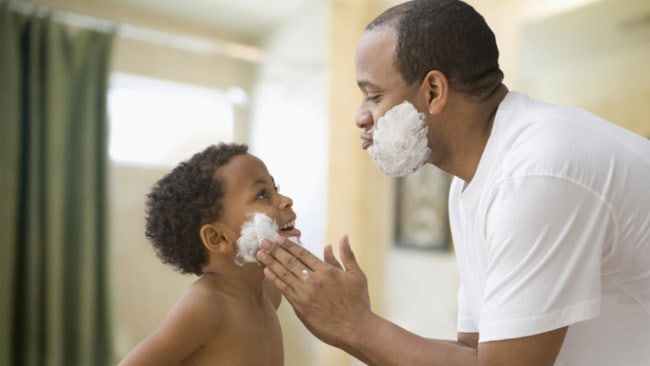
Beards can be attractive, but even the mightiest beard needs a healthy amount of trimming. Teaching basic hygiene – especially in all things hair – is just another one of these things every dad should make sure his son knows all about. Shaving can be a dangerous thing, and you’re bound to cut yourself now and again, so having a mentor show you just how it’s done with the least amount of mess and the highest amount of smooth is important.
#3. How to use a knife
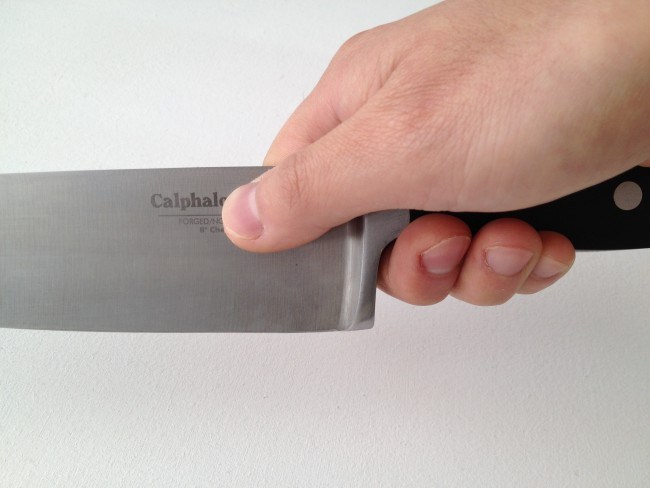
Knives are essential in the kitchen, in the woods, and in general. Having a trusty pocket knife in case a blade comes in handy is, well, handy – unless your hand knows nothing about handling a keen edge. Teaching safety and respect for weapons and tools of all kinds both makes sure your son stays out of trouble he can’t handle, and means he knows what to do with a knife when it counts. That is, during a feverish session of onion chopping.
#4. How to drink responsibly

Everyone’s got a limit, and it’s best to make sure your son knows that. In the US, an average of six people die of alcohol poisoning a day – keeping a child off that list requires not just strict rules when it comes to alcohol, but a firm understanding of the effects and dangers of drug consumption in general. Alcohol is a huge problem that many people don’t treat nearly as seriously as they should – especially when the risk of personal injury and social misconduct is far, far higher than with smoking pot, the other common teenage recreational substance.
#5. How to be polite

Courtesy is a powerful tool of influence, and having proper manners invokes a sense of maturity and responsibility in others. Knowing the basics of polite speech, how to behave at a table (no elbows on the table, eat over the plate, keep your mouth closed, etc.), and how to control composure in conversation all leads to better chances of success, whether it’s in business, or simply dealing with the in-laws. Being polite also creates respect – and respect is key to forming amiable relationships.
#6. How to start a fire

Fire is a basic tool in the outdoors, but starting one – and more importantly, properly maintaining one – is a tough skill to master. There may hopefully never come a time when your son is stranded in the wilderness, but if he does decide to Bear Grylls it up, then fire can be his best ally. Making a bow drill, carrying a flint and steel or waterproof matches, gathering tinder, kindling and logs and making sure the end result isn’t a wildfire – just some basics, and your son’s chances of survival will be much higher. Well, that, and it’s a generally useful skill to have. Just in case.
#7. How to handle a fight
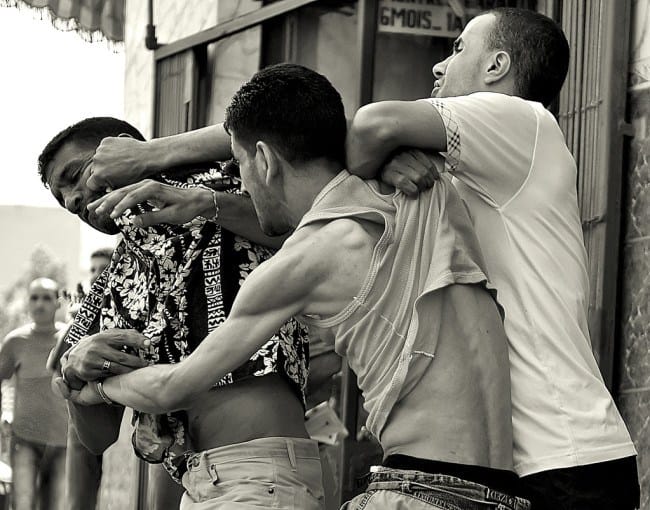
Handling a fight doesn’t just involve waking the dragon within and leaping over a pair of assailants with a Fei Long-esque flying kick (do not attempt that), but it involves teaching your son what it means to take control over a bubbling, aggressive situation, and stop a fight from escalating into uncontrollable fisticuffs with the use of calm assertion, reason, and compromise. If that fails, then it involves teaching him how to stop a wild brawler in their tracks with some expert martial arts. Or a foot to the groin. Whatever works.
#8. How to make rudimentary furniture
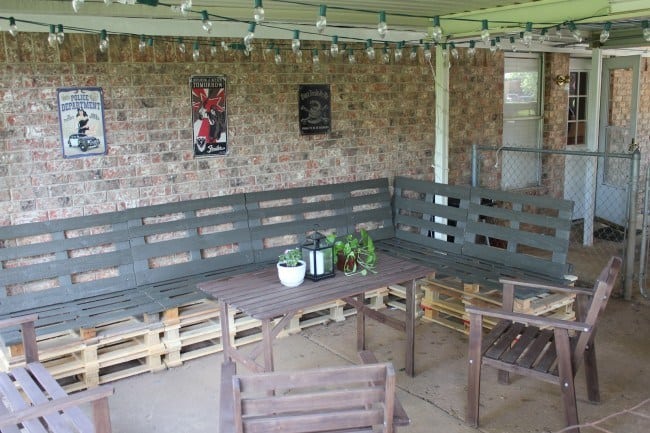
Sometimes, buying furniture is expensive. Actually, no – buying furniture is always expensive. Making it, however, can be a lot cheaper and a lot more fun. Besides that, it’s the perfect father-son bonding activity. Buy a couple used pallets, some tools and nails, and get to work on making tables, chairs, beds and sofas – all while saving a lot of money and spending quality time with Junior. It’ll also teach him to be frugal and smart with his cash, by coming up with inventive ways to save space and furnish a home for much less than market price.
#9. How to keep a clean room (and house)

Very, very important. It’s a stereotype for guys to keep a barn for an apartment, and pig stall for a bedroom, but it shouldn’t be. Keeping a clean, organized home doesn’t require a monstrous amount of effort – especially for bachelors – and is a big score with the ladies. Or guys. Either way, hygiene and cleanliness is the attractive alternative to slobbishness – and it’ll teach your son respect for the work people do in the janitorial business.
#10. How to fix your bathroom or kitchen plumbing

When you’re renting cheap apartments on your road to financial success and all that jazz – or when you’re at a friend’s place and his drain is messed up – nothing’s more impressive than the moment when you roll up your sleeves, say “get me a wrench, seal tape and a moment please” and get the job done (whatever it may be at the time). But the teaching doesn’t end in plumbing – learning the Way of the Wrench is a great lesson dads should keep in mind, from fixing up an old bike and working it with a rag and some WD40, to taking apart a motorcycle and putting it back together with modifications. Okay, that last part might actually require professional mechanic expertise and a few years practice, but hey.
#11. How to treat others

Other people, children, animals, and even plants – all living things deserve consideration and some respect. Teaching your son to understand and respect the wishes of others is important, especially if he grows up to become a strong young man. Arrogance and ignorance are all too common among young men, and that leads to a lot of grief. Even just teaching an open-minded, empathetic perspective of the world and others means your son will be able to go through the world and help others, rather than hurting people inadvertently, or worse, for his own pleasure.
#12. How to drive
Driving is also an essential skill – and one that shouldn’t only be taught at 16 onward. Taking your 10-year-old for a little drifting session can help instill a respect for automobiles (as long as you’re skilled and confident enough to drive safely while making it clear that a car isn’t a toy). Teaching the basics of gear shifting, fuel types and differences, engine function and the mechanics of braking and accelerating are all things someone well under the age of 16/17 can learn and understand, and then apply in the future without the knowledge base of a complete novice (and control over what can potentially be a 2-ton deathbox).
#13. How to tend a garden
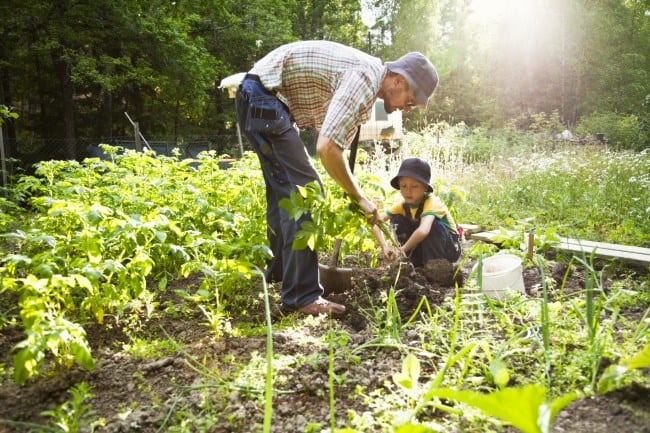
Gardening can be manly. After all, you’re putting food on the table – and food is the only sensible thing to have in a garden. That, and pretty flowers. But that’s just a personal preference. With a few quick ideas, all you need is a balcony and a couple crates of earth, and you can get started with growing potatoes, tomatoes, and herbs like basil, oregano, mint and lavender right in the middle of a large city, five stories above sea level. It’s a crafty way to save money, it’s healthy, and it’s a good hand workout. It makes great bonding sessions too.
#14. How to deal with frustration

The line between boy and man is very thin, and too often, boys with the bodies of men do stupid things to hurt others because of an inability to control frustration. Teach your son what it means to wield physical power, and how to use it responsibly. Teach him that you can hurt others without using your body, and that he should be aware of that – and avoid it. Passive aggression and emotional assault can be just as painful as a punch, and it’s also a way to malevolently relieve stress. We all experience pain, and anger – it’s a part of the human experience. But that doesn’t mean we should make it a part of other people’s experiences. Fathers should make sure that when the time comes, they’ll have taught their sons how to stow the boy, and become the man.

